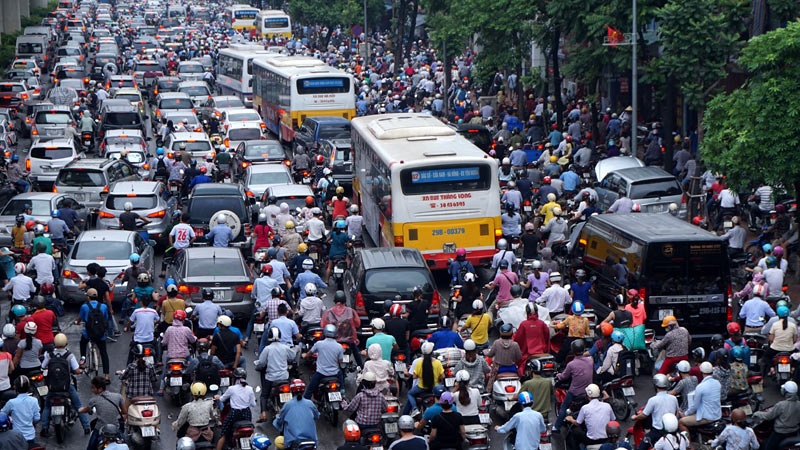World set to reach eight billion people in mid-November
The forecast reads that reaching this milestone is both a cause for celebration and a clarion call for humanity to find solutions to challenges.
The challenges facing humanity are deemed acute, including climate change, ongoing conflict, and COVID-19 which are disproportionately affecting the most marginalised and vulnerable people.
Along with this, millions continue to live in poverty and suffer from hunger and malnutrition, not having access to healthcare and social protection, and are unable to complete quality primary and secondary education.
In addition, women worldwide are still denied the fundamental right to make decisions over their bodies and futures, and there is a worrying roll-back of progress on women’s rights in many countries.
The fresh forecast, however, also noted that despite these challenges, the story behind eight billion is a story of triumph.
“Our world, despite its challenges, is one where higher shares of people are educated and live healthier lives than at any previous point in history. Focusing exclusively on population totals and growth rates misses the point – and often leads to coercive and counter-productive measures and the erosion of human rights," said United Nations Population Fund executive director Natalia Kanem. "In fact, people are the solution, not the problem. Experience shows that investing in people, in their rights and choices, is the path to peaceful, prosperous and sustainable societies.”
The forecast indicates that this moment calls for both vision and action, and humanity holds the key to unleashing the unlimited potential of people around the world to address the challenges, poverty, discrimination, violence, and other barriers that are denying millions of people around the world their rights and choices.
As for solutions, the fresh forecast suggested governments pursue people-centred population policies with sexual and reproductive health and rights at their core; the private sector is urged to develop creative solutions, harnessing the power of innovation and technology for the global good.
Key findings of the World Population Prospects 2022
 |
The forecast also reads that the world’s population is projected to reach a peak of around 10.4 billion people during the 2080s and to remain at that level until 2100.
In fact, it took about 12 years for the world's population to grow from seven to eight billion, approximately the same time as from six to seven billion. The next billion is expected to take approximately 14.5 years by 2037.
| The world’s population is projected to reach a peak of around 10.4 billion people during the 2080s and to remain at that level until 2100. |
According to the forecast, half of the eighth billion added to the world population was a result of Asia’s demographic expansion. Africa made the second-largest contribution (almost 400 million). Africa and Asia will drive population growth until the ninth billion is achieved in 2037.
Two-thirds of the global population lives in a country or area where lifetime fertility is below 2.1 births per woman.
Global life expectancy at birth reached 72.8 years in 2019, an improvement of almost nine years since 1990. But in 2021, life expectancy for the least developed countries lagged seven years behind the global average.
One notable point in the forecast is that in many developing countries, the share of the population of working ages (between 25 and 64 years) has been increasing.
What the stars mean:
★ Poor ★ ★ Promising ★★★ Good ★★★★ Very good ★★★★★ Exceptional
Related Contents
Latest News
More News
- Russian President congratulates Vietnamese Party leader during phone talks (January 25, 2026 | 09:58)
- Worldwide congratulations underscore confidence in Vietnam’s 14th Party Congress (January 23, 2026 | 09:02)
- Political parties, organisations, int’l friends send congratulations to 14th National Party Congress (January 22, 2026 | 09:33)
- 14th National Party Congress: Japanese media highlight Vietnam’s growth targets (January 21, 2026 | 09:46)
- 14th National Party Congress: Driving force for Vietnam to continue renewal, innovation, breakthroughs (January 21, 2026 | 09:42)
- Vietnam remains spiritual support for progressive forces: Colombian party leader (January 21, 2026 | 08:00)
- Int'l media provides large coverage of 14th National Party Congress's first working day (January 20, 2026 | 09:09)
- Vietnamese firms win top honours at ASEAN Digital Awards (January 16, 2026 | 16:45)
- ASEAN Digital Ministers' Meeting opens in Hanoi (January 15, 2026 | 15:33)
- ASEAN economies move up the global chip value chain (December 09, 2025 | 13:32)

 Tag:
Tag:


























 Mobile Version
Mobile Version